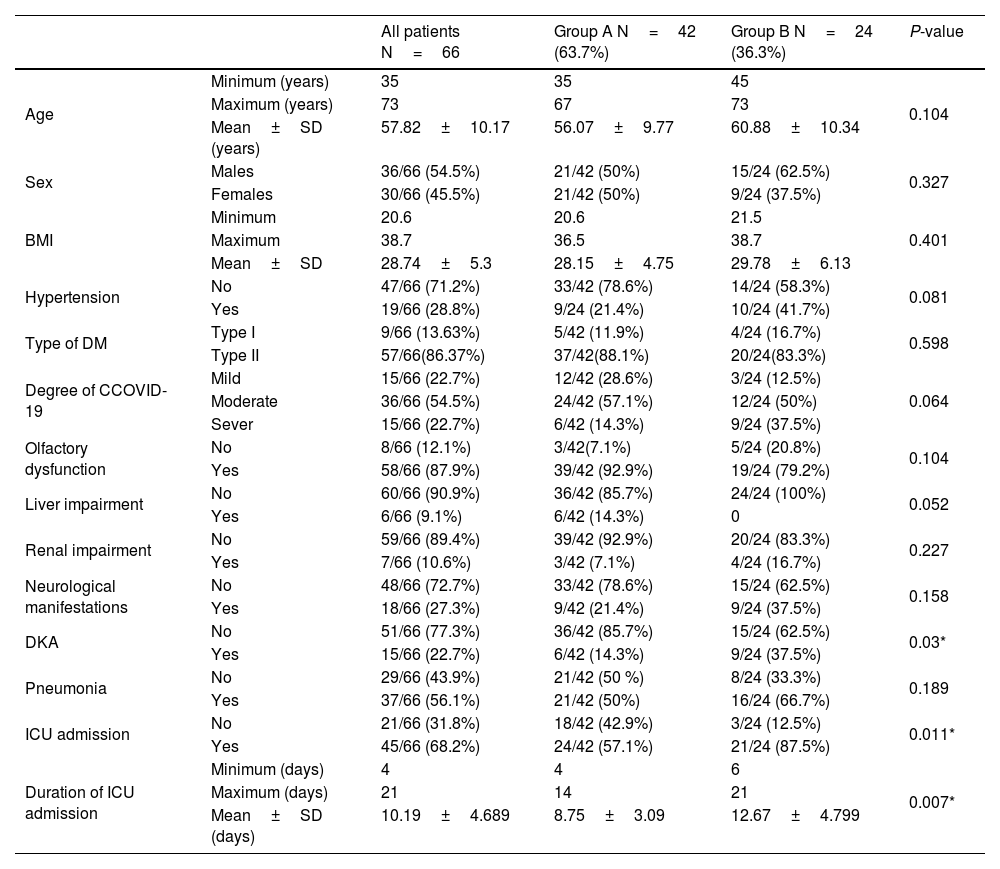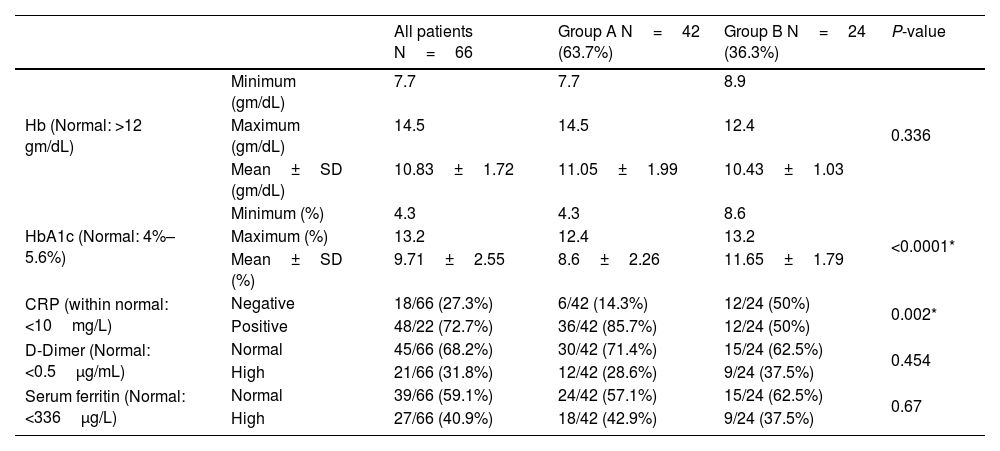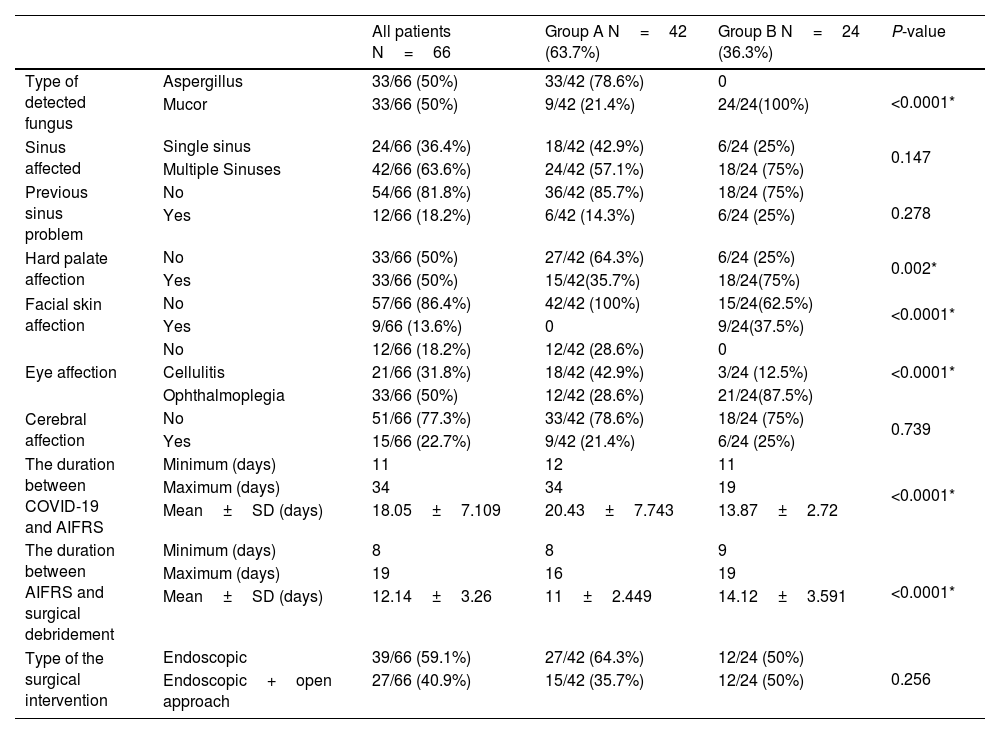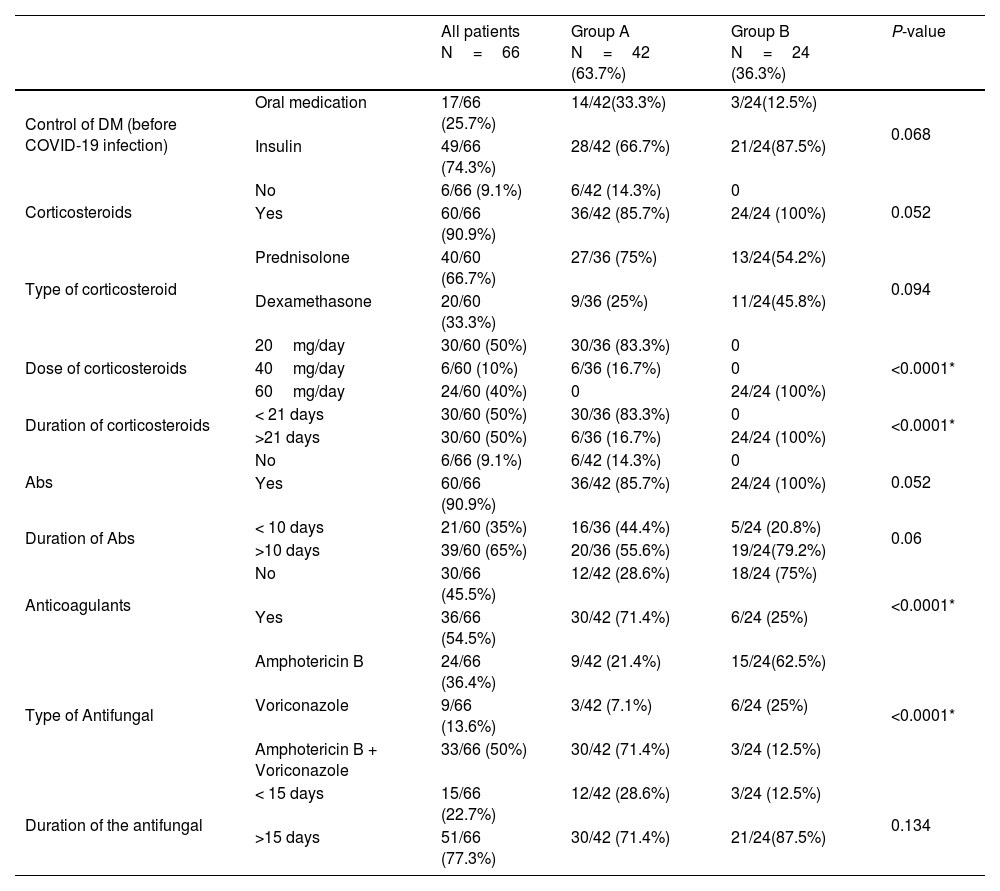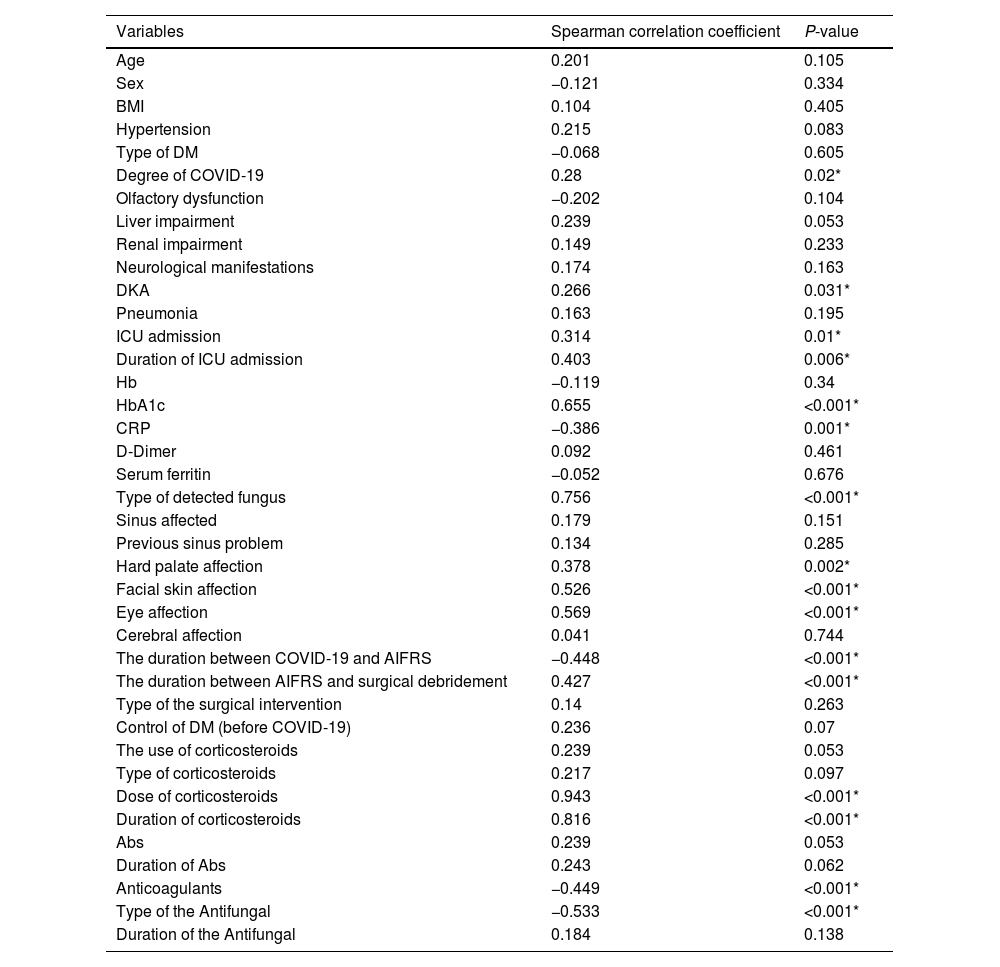This study aimed to analyze the behavior of acute invasive fungal rhinosinusitis (AIFRS) associated with COVID-19 infection as there has been an increase in the rate of AIFRS cases in the last two years, and many reports connected this rising with the COVID-19 infection. We studied most factors that may impact the prognosis as a trial to find the most affecting factors to improve the outcomes.
MethodsIt was a retrospective observational study that included cases from four tertiary referral institutions between November 2020 to February 2022. We included sixty-six patients who suffered from AIFRS associated with confirmed COVID-19. We observed the prognosis of all included patients with a six-month follow-up. We correlated the prognosis with many factors, such as demographic data, medical conditions, blood investigations, the features of fungal infections, and management.
ResultsForty-two patients (64%) survived after the AIFRS associated with COVID-19, and twenty-two patients (36%) died. High doses of corticosteroids with prolonged use were the main factors that affected the behavior of the AIFRS associated with COVID-19. HbA1c was a good predictor of the prognosis; a level less than 9.35% may indicate survival with 87.5% sensitivity.
ConclusionsAccording to this multi-center study, the mortality of the AIFRS associated with COVID-19 was high. The behavior was affected by glycemic control, the type of fungal species, and the type of antifungal therapy. Early surgical debridement, a combination of Amphotericin B with Voriconazole, and anticoagulants helped improve the prognosis.
Durante el periodo de la pandemia de COVID19, ha habido un aumento en la tasa de casos de rinosinusitis fúngica invasiva aguda (RSFIA), siendo cada vez más evidente la asociación entre ambas entidades. EL objetivo de este estudio ha sido analizar la evolución de los pacientes con rinosinusitis fúngica invasiva aguda asociado con la infección por COVID-19, analizando los factores determinantes en la evolución y pronóstico de la enfermedad.
MétodosFue un estudio observacional retrospectivo que incluyó casos de cuatro instituciones de referencia de tercer nivel entre noviembre de 2020 y febrero de 2022. Se incluyeron sesenta y seis pacientes que padecían RSFIA asociado a COVID-19 confirmado. Observamos el pronóstico de todos los pacientes incluidos con un seguimiento de seis meses. Correlacionamos el pronóstico con muchos factores, como los datos demográficos, las condiciones médicas, las investigaciones de sangre, las características de las infecciones fúngicas y el manejo.
ResultadosCuarenta y dos pacientes (64%) sobrevivieron después de la RSFIA asociada a COVID-19, y veintidós pacientes (36%) fallecieron. Las dosis altas de corticoides con uso prolongado fueron los principales factores que afectaron el comportamiento de la RSFIA asociada a la COVID-19. HbA1c fue un buen predictor del pronóstico; un nivel inferior al 9,35 % puede indicar supervivencia con una sensibilidad del 87.5%.
ConclusionesSegún este estudio multicéntrico, la mortalidad de la RSFIA asociada a la COVID-19 fue alta. El comportamiento se vio afectado por el control glucémico, el tipo de especie fúngica y el tipo de terapia antifúngica. El desbridamiento quirúrgico temprano, una combinación de Amphotericin B con Voriconazole y anticoagulantes ayudaron a mejorar el pronóstico.






